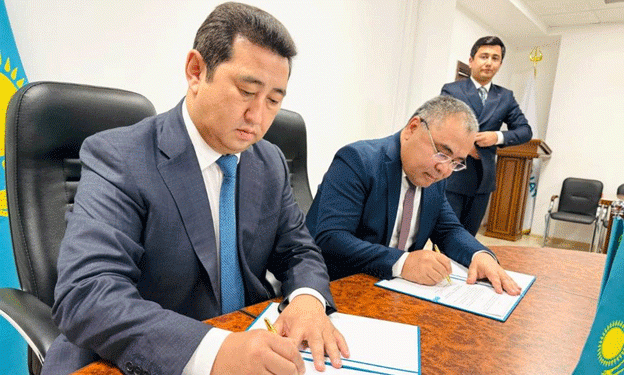Kazakhstan and Uzbekistan have long been key trading partners in the agricultural sector. In 2023, the agricultural trade volume between the two nations reached a substantial $1.7 billion, with Kazakhstan exporting $1.51 billion worth of agricultural products to Uzbekistan. For the first half of 2024 alone, the trade turnover has already reached $758 million, with $635.7 million accounted for by exports from Kazakhstan.
This robust trade relationship underscores the importance of continued collaboration, particularly in the areas of crop production and livestock farming. Minister Saparov emphasized the priority of expanding agricultural exports and cooperation, noting that over 23 million hectares were planted in Kazakhstan this year, with expectations of a strong grain harvest. Additionally, the state-owned Food Corporation has over 1 million tons of grain ready for export, further bolstering Kazakhstan’s role as a key grain supplier in the region.
Joint Agricultural Projects and Investments
The memorandum outlines several collaborative projects aimed at enhancing the agricultural output of both countries. One of the key initiatives is the development of joint grain and forage crop cultivation projects within Kazakhstan. These projects are expected to not only boost grain and oilseed production but also contribute to food security in both countries.
In addition to crop cultivation, there are significant investments planned in livestock farming and processing. In the Turkistan region of Kazakhstan, a large-scale feedlot with a capacity of 10,000 head of cattle and a meat processing complex capable of handling 1,500 tons per day are currently under construction. These projects are expected to significantly enhance Kazakhstan’s meat production capacity, creating new opportunities for export.
Another major project under discussion is the creation of a cotton-textile complex and logistics hub in the Maktaaral district, in collaboration with Uzbek investors. This facility, valued at 21 billion tenge, will have a production capacity of 160,000 tons and is set to operate in a full cycle from 2026 to 2027. This initiative is part of a broader strategy to integrate the textile industries of both countries, leveraging Uzbekistan’s expertise in cotton production.
Opportunities for Expanded Cooperation
Both nations have expressed a strong commitment to further expanding their agricultural partnership. Minister Abdurakhmonov of Uzbekistan highlighted potential areas for future collaboration, including the processing of sunflower seeds and hides, which are crucial for both countries’ agricultural industries.
These discussions and agreements are set against the backdrop of the upcoming Asia Grains & Oils Conference in Tashkent, scheduled for September 18-19, 2024. The conference will provide a platform for further dialogue on the future of agricultural trade between Kazakhstan and Uzbekistan, as well as opportunities for expanding cooperation across the broader Central Asian region.
The memorandum between Kazakhstan and Uzbekistan represents a significant milestone in the agricultural cooperation between the two nations. By leveraging each other’s strengths in crop production and livestock farming, both countries are poised to enhance their agricultural outputs and secure their positions as key players in the global agricultural market. The ongoing and planned projects reflect a shared vision for sustainable growth, increased productivity, and strengthened trade relations, promising a prosperous future for the agricultural sectors of both nations.
Error




